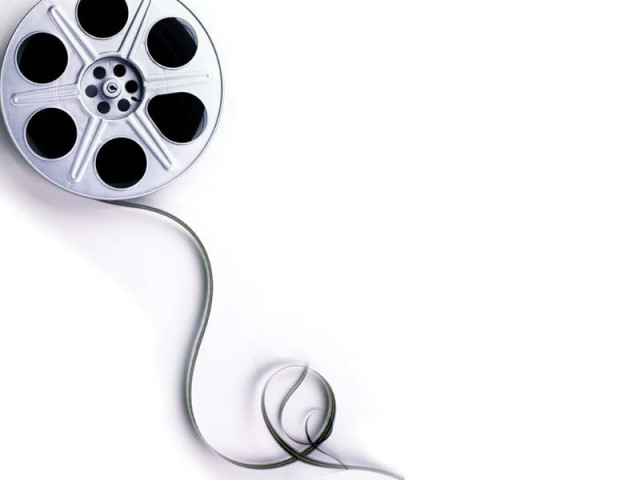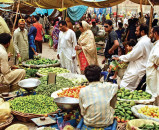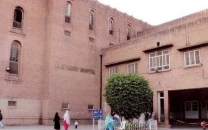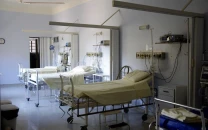Pakistan calling: Documentaries for social change
More than 20 films from Pakistan and Great Britain are being featured on the Royal Society website.

“Regrettably there is no platform for filmmakers in Pakistan to showcase their work despite great talent", says Mazari. DESIGN: AMNA IQBAL/FILE
“The country [Pakistan] runs two parallel education systems, the religious and the public-private…it is a national quandary that both are so distinct that their graduates are totally alien to each other.”
This is the voiceover by 28-year-old Alamgir Khan, a native of Charsadda, for his documentary, The Dual Education System - Integrating Madrassa with Mainstream Education.
Khan’s work is among more than 20 documentaries from Pakistan and Great Britain, being featured on the Royal Society website for the encouragement of Arts, Manufactures and Commerce (RSA) under an initiative called, Pakistan Calling.
The initiative, set up last year, is a joint effort by RSA and The Samosa, an online platform for a discourse on cooperation between Pakistan and the Great Britain, in collaboration with several universities including Karachi University, Beaconhouse National University (BNU), and the London Metropolitan University.
Khan, who has a master’s in film making, says the aim was to draw a comparison between the two education systems. He says there was a dire need for filmmakers to highlight social issues in the country.
Khan says he has observed marked differences between students from the two streams. He said this disconnect was indicative of a divided generation.
The Samosa director Anwar Akhtar said, “Pakistan Calling is about building positive connections and awareness between those working to improve the society in Pakistan with people in Britain, including the British Pakistani community,” He said in order to create ‘real conversations’ the project hoped to support both social and economic development in Pakistan.
“This project focuses on films that profile and talk about civil society and culture in order to promote and support those organisations.” he said.
Akhtar, who is based in Britain, visited Pakistan several times last year to help set up the initiative. He believes that the international media’s focus on conflict, corruption and sectarian violence in Pakistan has had an adverse effect on the perception people have of Pakistan.
“Whilst these issues are real, we hope Pakistan Calling can showcase the many people and organisations in Pakistan doing great work in spite of the difficulties,” he said.
Depicting the daily struggles of the communities living in the slums near River Ravi, filmmaker Nasir Ali Mazari’s documentary Life - Zindagi is also featured on the Pakistan Calling webpage.
Speaking to The Express Tribune, Mazari said he had always been motivated to show the not-so-glamorous side of Lahore through his documentaries.
“I was always inclined to show the lives of people deprived of basic amenities,” he said.
A lecturer at the television, film and theatre department at BNU, Mazari has worked in the area of poverty alleviation.
His documentary has no voice over. The images depict the lives of people living in an impoverished area near River Ravi.
Mazari says films are an effective medium to communicate social realities as images make the content more relatable to the viewer.
“Regrettably there is no platform for filmmakers in Pakistan to showcase their work despite great talent’, he said.
Akhtar of The Samosa, regrets that civil society groups and activists, which are critical for a ‘functional healthy democratic’ society fail to receive much coverage.’
“Their [civil society group’s] active presence enhances the state’s ability to provide for the needs of the citizens and helps tackle its most pressing social problems,” he said.
Akthar says 1.2 million British Pakistanis have links with Pakistan. He said these could serve as a platform for promoting more exchanges between the two countries.
The organisers of the initiative hope that more young filmmakers would make use of the platform.
Published in The Express Tribune, April 17th, 2013.



















COMMENTS
Comments are moderated and generally will be posted if they are on-topic and not abusive.
For more information, please see our Comments FAQ